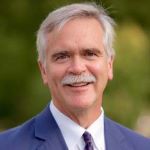<< Back
Who Should Purchase
Attorneys interested in access to voting rights.




Unpacking Barriers to Voting During an Election Year-EMS240424
Cost - FREE
Program Date - Wednesday, April 24, 2024
Product ID - EMS240424
CLE Credit
CT: 2.0 CLE Credits (Ethics)
About the Program
The right to vote is the foundation of American democracy, enabling the ordinary citizen to raise their voice to reflect the collective will of the American people. But can the promise that a vote represents be realized when voters are confronted with significant obstacles to exercising that right? For generations, Black voters and other voters of color have faced discriminatory policies and other obstacles that disproportionately affect their communities. These obstacles include limited polling places, long lines at the polls, voter identification laws, restrictive voting hours, and fewer opportunities to vote by mail. Recent new voting laws enacted were designed to and will affect the 2024 elections. Over the past few years, many of those laws have restricted voting and made it more burdensome. Yet some states have put forward new laws to make voting easier. How will these laws affect voting in America during this critical election year? Join us as we discuss.
Credit
Ethics and Professionalism:2.0
Description
Presented by: This segment of the Constance Baker Motley Series on RacialInequality is presented by the Connecticut Bar Association (CBA) and its Diversity, Equity, & Inclusion Committee, in collaboration and co-sponsorship with the Connecticut Bar Foundation (CBF) and James W. Cooper Fellows.
You Will Learn
- How has legislation and public policy affected voting rights historically?
- How do restrictive voter laws work to make voting more difficult?
- How can states protect the right to vote?
- What is the trend, and what does this mean for the future of elections in America?
Who Should Purchase
Attorneys interested in access to voting rights.
Speakers


William Bloss Lauren Miller
Koskoff, Koskoff & Bieder PC, Brennan Center for Justice,
New Haven, CT New York, NY

Professor Douglas M. Spencer
University of Colorado School of Law,
Boulder, CO
Moderator

Michelle Querijero
Farmington, CT